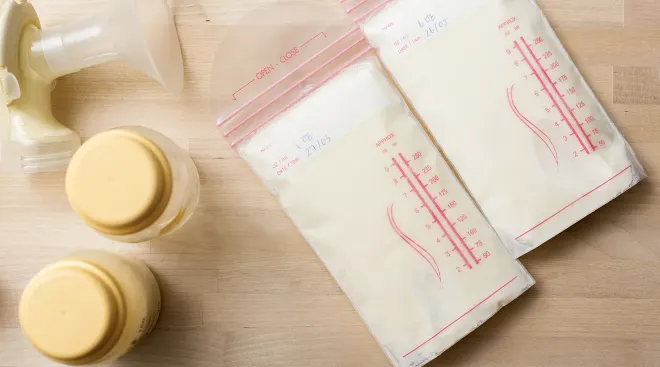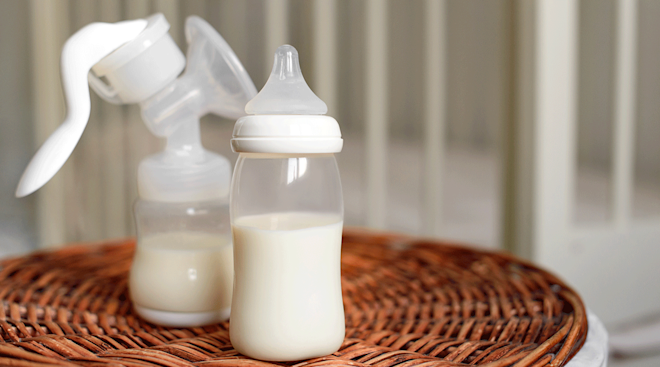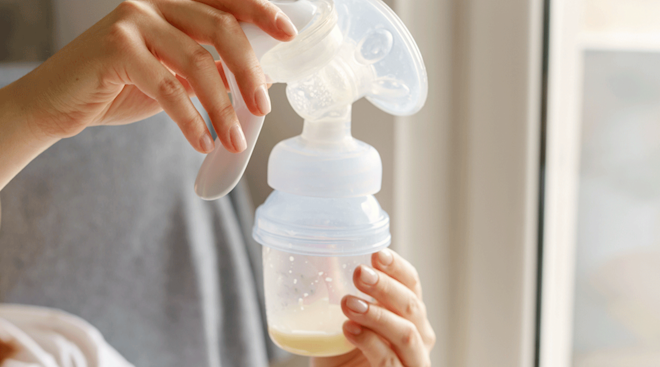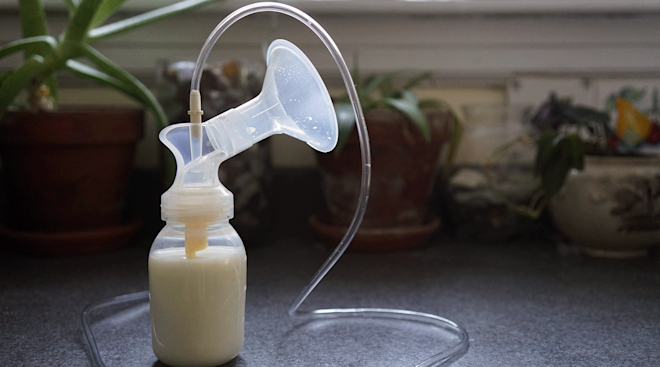Any Amount of Breastfeeding May Lower Baby’s Blood Pressure, Study Says
Early breast milk, also known as colostrum, has long been considered beneficial for babies. It helps build baby’s immune system and reduces their risk of diabetes, inflammatory bowel disease and other chronic illnesses later in life. Previous research has also found that breastfeeding can help reduce a child’s risk of cardiovascular disease in adulthood. Now, one study is examining whether just a few days of breastfeeding early in life may be enough to protect baby against high blood pressure.
The study, published last month in the Journal of the American Heart Association, looked at data from the ongoing Canadian CHILD Cohort Study of over 3,000 babies born between 2009 and 2012. The kids have been followed since to monitor their health and development. For the study, researchers analyzed infant feeding information from hospital records and caregiver questionnaires for close to 2,400 children.
They found that 98 percent of the babies were breastfed to some extent, while 2 percent were not breastfed at all. Of the babies that were breastfed, 78 percent were breastfed for six months or more and 62 percent were exclusively breastfed for at least three months. They found that the babies who were breastfed, even for a few days, had lower blood pressure at 3 years old— regardless of their body mass index and their mom’s social, health or lifestyle factors—than those kids who had never been breastfed. The results remained the same regardless of how long the child was breastfed or whether they received supplemental nutrition and foods.
“This is the first study to evaluate the association of breastfeeding in the first days of life and blood pressure in early childhood,” lead study author Kozeta Miliku, M.D., Ph.D., clinical science officer of the CHILD Cohort Study and post-doctoral fellow in medicine at McMaster University, explained in a press release. “Infants who received even a relatively small amount of their mother’s early breast milk, also known as colostrum, had lower blood pressure at 3 years of age, regardless of how long they were breastfed or when they received other complementary foods.”
It’s important to note further research is needed, as the study could not confirm a cause-and-effect relationship between breastfeeding and blood pressure in early life.
“This important study provides ongoing support for the premise that care during infancy can influence heart health,” Shelley Miyamoto, M.D., FAHA, chair of the American Heart Association’s Council on Lifelong Congenital Heart Disease and Heart Health in the Young (Young Hearts), said. “While further investigation is needed to understand the mechanisms responsible for the positive impact of early breastfeeding on blood pressure in young children, the authors should be commended for their identification of a modifiable factor that has the potential to improve child health.”
“The benefits of sustained and exclusive breastfeeding are well documented for numerous health conditions, including respiratory infections and diarrheal disease during infancy, and chronic conditions including asthma and obesity later in life,” senior study author Meghan B. Azad, Ph.D., deputy director of the CHILD Cohort Study, also said. “Our study suggests that for cardiovascular outcomes such as blood pressure, even a brief period of breastfeeding is beneficial. This points to colostrum as a key factor in shaping developmental processes during the newborn period. For many reasons, sustained breastfeeding should be strongly supported, and it is also important to understand that ‘every drop counts,’ especially in those critical first few days of life.”
Please note: The Bump and the materials and information it contains are not intended to, and do not constitute, medical or other health advice or diagnosis and should not be used as such. You should always consult with a qualified physician or health professional about your specific circumstances.
Navigate forward to interact with the calendar and select a date. Press the question mark key to get the keyboard shortcuts for changing dates.





















































